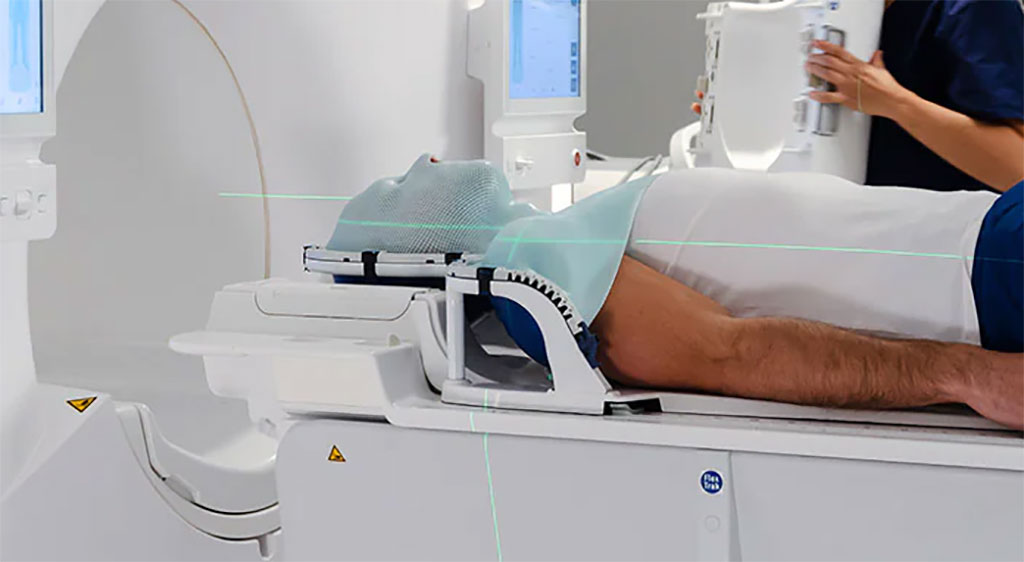AI Technology Advances MR Radiotherapy Imaging and Simulation for Head and Neck Cancers
Posted on 21 Oct 2022
An artificial intelligence (AI) enabled radiotherapy application allows the use of MR as the sole or primary imaging modality for radiotherapy planning in the treatment of soft tissue tumors in the head and neck, along with the brain, pelvis and prostate, without the need for CT. The AI-powered solution enables images with CT-like density information to be automatically generated from a single, high-resolution MR scan and can be used for CT-equivalent dose calculations and accurate patient positioning.
The AI-enabled MRCAT Head and Neck radiotherapy application from Royal Philips (Amsterdam, The Netherlands) allows clinicians to plan radiation therapy using MRI only, without the need for CT. Within just one fast MR exam, MRCAT Head and Neck provides excellent soft-tissue contrast for target and OAR delineation, and CT-like density information for dose calculations. This not only extends the benefits of MRI’s excellent soft-tissue contrast to radiotherapy planning and adaptive strategies, but it also eliminates arduous, error-prone CT-MRI registration from the process. MRCAT Head and Neck uses AI for fast computation of MRCAT attenuation maps based on the mDIXON source scan. The resulting MRCAT density maps provide continuous Hounsfield Units for CT-like image appearance and are shown right at the MR console for immediate review. MRCAT Head and Neck has received FDA 510(k) clearance and is commercially available in the U.S.

Head and neck cancer patients often find it difficult to endure an MRI exam, especially when immobilized by a thermoplastic mask. As a result of a recent development partnership with patient-positioning company MacroMedics (Moordrecht, Netherlands), Philips has also announced compatibility of MacroMedics’ latest DSPS (Double Shell Positioning System) Prominent positioning system with Philips MR Head Neck Coil. This unique solution combines the superior soft tissue imaging capabilities and the high-resolution image quality of Philips’ head and neck coil with the comfort-enhancing and positional accuracy and stability features of MacroMedics’ mask. These developments aim to improve the accuracy of radiotherapy planning and simulation to help achieve better patient outcomes, enhance patient comfort, and offer the efficiency benefits of an MR-only workflow.
“The superior soft tissue imaging of MR together with advances in the integration and orchestration of data, including the use of artificial intelligence, promise greater clarity and less subjectivity in planning radiotherapy for head and neck cancer,” said Ilya Gipp, Chief Medical Officer Oncology Solutions at Philips. “Our collaboration with MacroMedics to develop a patient-friendly mask system compatible with our high-resolution dStream imaging coils highlights Philips’ commitment to providing the precision tools needed for the localization and characterization of difficult-to-treat tumors.”
Related Links:
Royal Philips
MacroMedics














